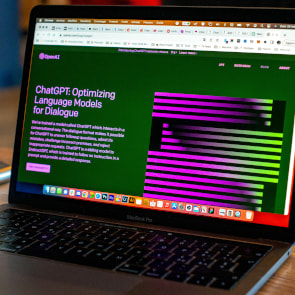Do We Actually Need AI Superintelligence, or Can We Already Ask AI Everything We Need?
 If you search for the latest news about AI on Google, it seems like every other result is about AGI in one form or another: how we’re one step away from releasing an AGI model, how AGI will wipe us all out, or take our jobs, or how AGI will unlock new abilities for humanity.
If you search for the latest news about AI on Google, it seems like every other result is about AGI in one form or another: how we’re one step away from releasing an AGI model, how AGI will wipe us all out, or take our jobs, or how AGI will unlock new abilities for humanity.It seems that AGI is just around the corner: Mark Zuckerberg, CEO of Meta, recently said that his company's AI systems are already improving on their own.
But with all this excitement, there's still one big question that hasn't been answered: Do we really need superintelligence?
We can Already Ask AI About Everything We Need to Improve Productivity
Setting aside the theoretical aspects of AGI, which are undeniably really cool, we see that AI tools are already capable of performing most everyday tasks that we need them to do.
This is where I'm looking at this question. Many people seem disappointed that OpenAI’s latest model, GPT-5, showed no signs of AGI, instead offering only an incremental upgrade. Many are saying that we’ve hit a plateau of diminishing returns.
At Overchat AI, we build productivity tools for people who want to Ask AI questions and use models like GPT, Claude, and Gemini to solve real-world tasks, so we’re very tuned into what these models are capable of in terms of real-world use, as we constantly test them.
With GPT-5, we saw that while the leap in capability from GPT-4o to GPT-5 isn’t as significant as the leap from GPT-2 to GPT-3, it still has a big impact on what you can do with the model.
For example, GPT-5 can code a simple game using one-shot prompting, which GPT-4 could not do (this is when you ask AI to perform a task and expect it to complete it without providing any examples in earlier prompts or follow-up prompts).
Before GPT-5, you would have to use different models, code some things by hand, and frustratingly go through multiple buggy iterations to get something passible. Now, you can type "Code a Frogger game, but with ducks," and you’ll get Frogger with ducks.
In other words, it's becoming much easier to use AI, and that's where the value lies for many everyday users.
We’re Probably Nowhere Near AGI, but that’s OK
Personally, I don't buy Mark Zuckerberg's claim that Meta's AI systems are showing self-improvement. Rather, even if they are, I don’t think this is related to an AGI breakthrough.
Global intelligence has become a hype machine for big-tech companies, so we hear claims about ultra-smart AI systems nearly every day, whether from Meta or OpenAI.
Also, researchers at UC Santa Barbara showed a Gödel Agent that could get better at specific tasks. But they also said that this is very different from the type of self-improvement that leads to superintelligence, and this is most likely what’s happening at Meta.
Current "self-improving" AI systems are not really self-improving.
They can optimize specific functions or adjust the weights of neural networks, but they can’t rewrite their fundamental architecture or develop new cognitive capabilities.
The difference between these improvements and superintelligence is like the difference between a calculator that gets faster at arithmetic and one that suddenly understands philosophy.
We’re Already in a Very Good Place With AI Models (But AI Tools Have Ways to Go)
The truth is, we're already in an AI golden age, even without superintelligence, but the number of really useful tools is still limited.
Current AI models can already write stories, song lyrics, and images and videos. They can also write code, analyze data, and do all of that very quickly.
However, if you've tried using some of these models, you may have also encountered situations where they don't respond as expected or misinterpret your instructions in silly ways. Reddit is full of such examples.
At Overchat AI, our focus is to build AI tools that are easy to use and help you get things done, whether it's to generate an image, write an SEO article, or generate a code snippet. We aim to create AI-powered tools that “just work.”
We know from experience that making these tools useful versus annoying often has to do with fine-tuning models, creating easy-to-use user interfaces, and optimizing for specific cases.
The models we have right now are more than good enough for that.
Bottom Line
Here’s where I stand. Instead of rushing towards superintelligence, we should focus on three things:
First, develop strong AI systems for specific high-impact uses. Medical diagnosis, climate modeling, and scientific research don't need AGI. They need reliable, interpretable, and specific AI.
Second, invest in AI safety research that addresses current systems, not future ones. This means that the AI we're building should be easy to understand, strong, and consistent.
Third, make sure that people can keep doing the things they do well, even as AI becomes more powerful. This requires a smart use of technology that makes human judgment better, not worse.
Breadcrumbs
Tags